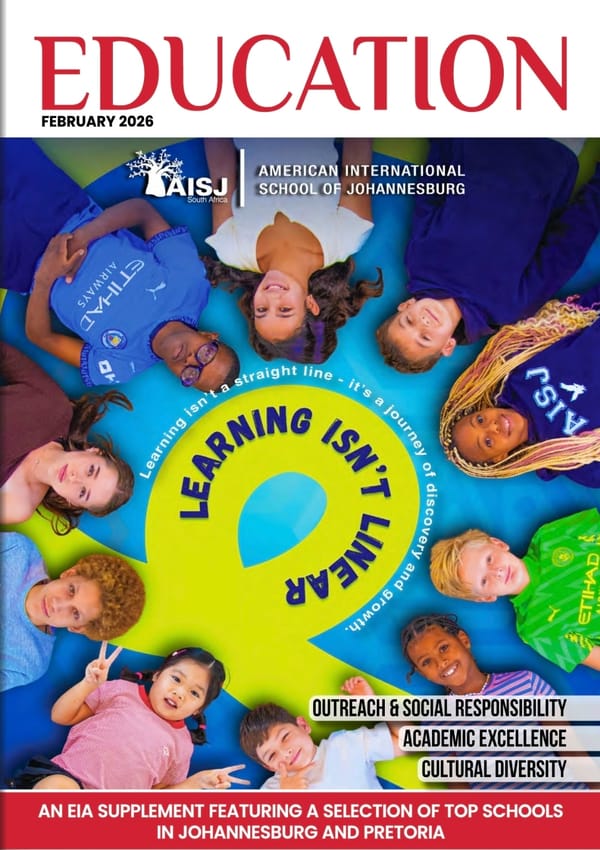What Gifted Children Wish Their Teachers Knew

He was six when his Grade 1 teacher told me, “He’s just so arrogant.”
She didn’t say it to be cruel — in fact, I think she meant well. It was said with a kind of frustrated affection, like she couldn’t quite figure him out. He corrected her spelling, rolled his eyes when the class repeated the same sentence three times, and asked why they were doing “baby work.”
To her, it looked like defiance. Disrespect. Arrogance.
What she couldn’t see was that he’d read the textbook cover to cover in the first week. That he was deeply anxious about getting things “wrong.” That the eye-rolls were a form of protest — not because he didn’t respect her, but because he didn’t know how to cope with being so profoundly bored, so wildly out of sync, so alone in a room full of children.
This article isn’t a finger-point. It’s a bridge. A quiet request on behalf of the children who live at the edges of the bell curve — the ones who don’t always follow the script, but have stories that matter.
“I’m not being difficult — I’m overwhelmed.”
Gifted kids don’t come with a volume dial. Everything’s turned up — the feelings, the reactions, the questions, the fears.
The child who sobs when asked to redo a worksheet isn’t spoiled — she’s overloaded. The one who slams a book shut when you won’t answer his third question isn’t rude — he’s emotionally invested. Their brains fire fast, and their hearts often don’t know how to keep up.
Overwhelm doesn’t always look like chaos. Sometimes it looks like withdrawal. Silence. Compliance that turns to burnout. That child who always seems “fine” in class might cry in the car every day after school. You may never see the meltdown — but their parents will.
If you see big reactions in a small body, stop and ask: What’s happening underneath this?
Often, it’s not defiance. It’s a system running hot.
“I’m correcting you because I care.”
Gifted children can be… intense about accuracy. About fairness. About logic.
It’s not a personal attack.
The truth matters to them — often more than social niceties. If you say 2 + 2 is 5, they’ll tell you. If you round up 3.6 to 4 without clarifying, they’ll raise a hand. If you contradict yourself, they’ll remember. And yes — sometimes they’ll point it out in front of the entire class.
It’s mortifying. But it’s not malicious.
These kids aren’t trying to undermine you. They’re trying to make sense of the world. They’re trying to find security in precision — because uncertainty is their kryptonite.
What helps? Teach them how to express disagreement kindly. Show them there’s a difference between being right and being wise. And when you can, thank them for noticing. Let them know it’s okay to see more — it’s how they’re wired.
“I’m bored, not lazy.”
This one is tough — because it looks like laziness.
You’ve planned your lesson. The rest of the class is engaged. But this one child is staring out the window, drawing dragons on the margin of the page, or loudly asking, “Do we have to do all of it?”
It’s easy to label them unmotivated. But more often than not, they already understand the material. Gifted children crave challenge, not repetition. They want depth, not drills.
That doesn’t mean they’re entitled. It means they’re disengaged — and possibly disillusioned.
Offer an extra question that involves reasoning. Let them research something related. Invite them to teach part of the concept to a peer. Even small moments of autonomy can re-engage a gifted brain.
And if they still resist? Ask what they’d rather do. The answer might reveal everything.
“I think faster than I write.”
This is one of the greatest heartbreaks in gifted education — watching a child with brilliant ideas lose marks because they couldn’t get them down quickly enough.
Processing speed, fine motor issues, anxiety, perfectionism — all of these are common among gifted and twice-exceptional learners. The mind is ready, but the hand can’t keep up. Or the thoughts come so quickly they can’t hold onto them long enough to form a sentence.
If you measure intelligence by neatness or speed, you’ll miss them entirely.
Please allow alternatives. Let them type. Let them talk. Let them draw their answers or record a voice note if they need to. Give them time.
You’re not doing them a favour. You’re letting them show you what they know — and sometimes, it’s extraordinary.
“I need real connection.”
Gifted kids often think they’re the only ones who feel this way — too much, too fast, too deep. That loneliness can settle early, especially if they’re socially out of step with their peers.
A quiet child isn’t always shy. A talkative child isn’t always rude. A defiant child isn’t always challenging for the sake of it.
They’re searching. For safety. For resonance. For someone who gets that they’re different, but not broken.
The way you see them matters more than the way you teach them.
Connection doesn’t require hours. It can happen in a moment:
- Noticing their drawing.
- Remembering their interest in space.
- Saying, “That’s a great question,” and meaning it.
You don’t have to be their best friend. But you can be the first adult who makes them feel like they make sense.
“I can tell when you don’t like me.”
This is the one that sticks in their bones.
Gifted kids are often emotionally intuitive. They read facial expressions, tone shifts, tension in the room. They’ll pick up on irritation — even if you think you’ve hidden it.
And when they feel disliked, they’ll either double down — more defiance, more withdrawal — or they’ll fold. Either way, it impacts their ability to learn.
You don’t have to love every child the same way. But if you can show even a flicker of willingness to understand them, they will notice.
And they will remember.
What You Can Do (That Doesn’t Require a Curriculum Overhaul)
We know you're stretched. You’re juggling deadlines, classroom dynamics, admin, outcomes, and expectations from all directions.
Supporting gifted kids isn’t about reinventing your practice — it’s about widening the lens a little.
Here’s what helps:
- Offer choice. Can they show what they’ve learned in a way that suits them? Let them surprise you.
- Build in depth, not just speed. Add “big picture” questions. Let them explore what matters to them.
- Allow safe expression. Create room for disagreement, alternative perspectives, and original thought — even if it challenges the script.
- Keep communication open. Trust that many parents have fought hard just to get their child to school. If they seem passionate, it’s probably because they’ve been dismissed before.
- Believe them. Believe their boredom. Believe their overwhelm. Believe their brilliance, even when it doesn’t come packaged neatly.
Final Thoughts: Teaching the Ones Who See Differently
Teaching gifted kids isn’t about giving them more. It’s about giving them meaning.
It’s about recognising that learning isn’t one-size-fits-all — and neither is potential.
Some of these children will become academics. Others will become artists, engineers, entrepreneurs, or forest rangers. Some will never fit a mold. And that’s okay.
What matters is that you saw them.
That you didn’t mistake their struggle for disobedience, or their brilliance for arrogance.
That you gave them a moment of safety, a flicker of belief, a space to belong.
And if you did?
They will carry that with them — quietly, fiercely, forever.
About the Author
Nicola Killops is a writer, gifted education specialist, and neurodiversity advocate with a particular interest in twice-exceptional learners. As a mother to a profoundly neurodivergent son, her work blends lived experience with practical insight — helping parents and educators better understand the children who don’t fit the mould, but were never meant to.





